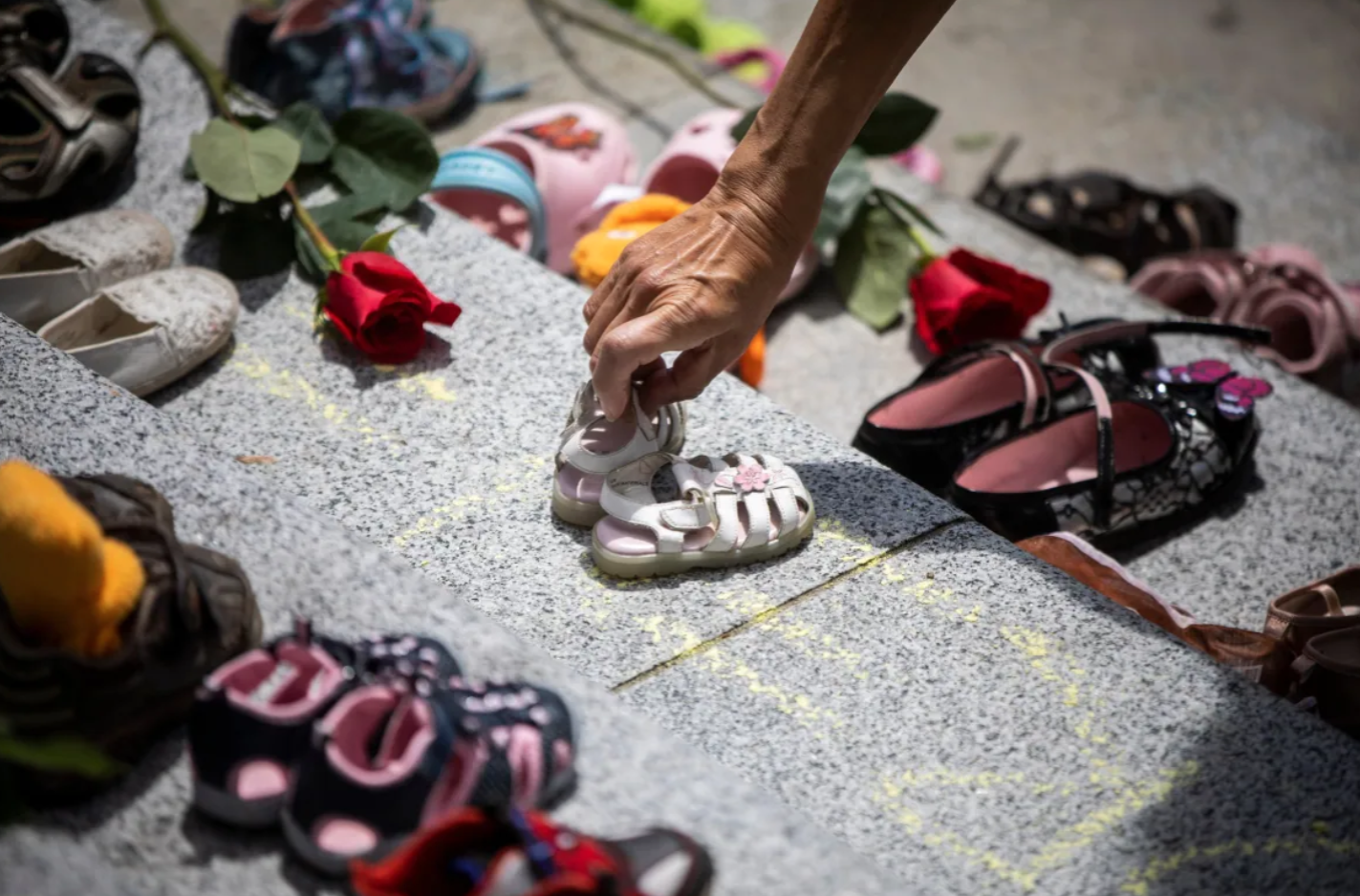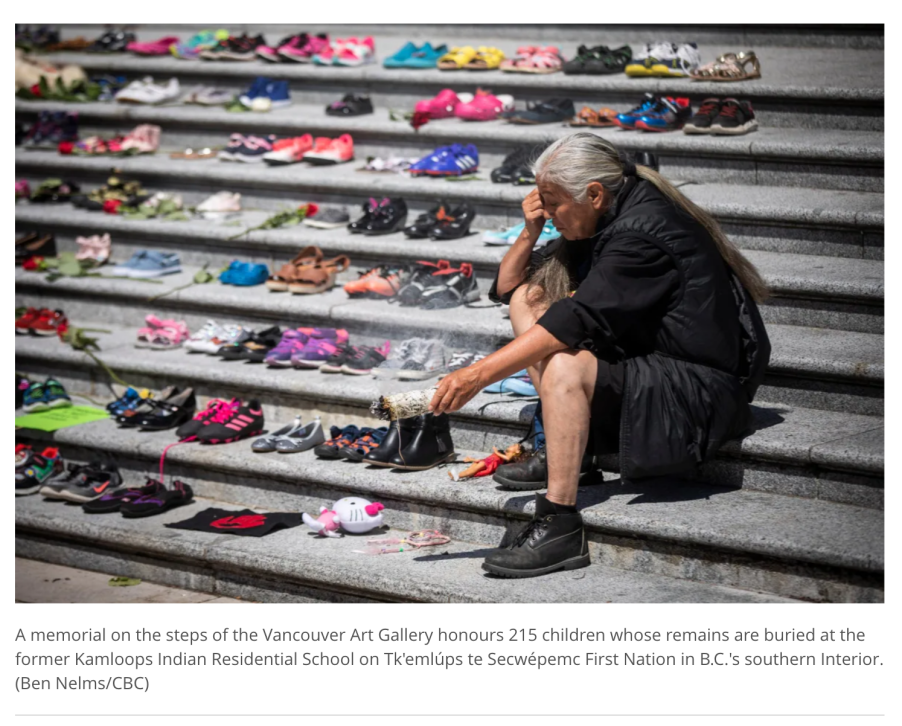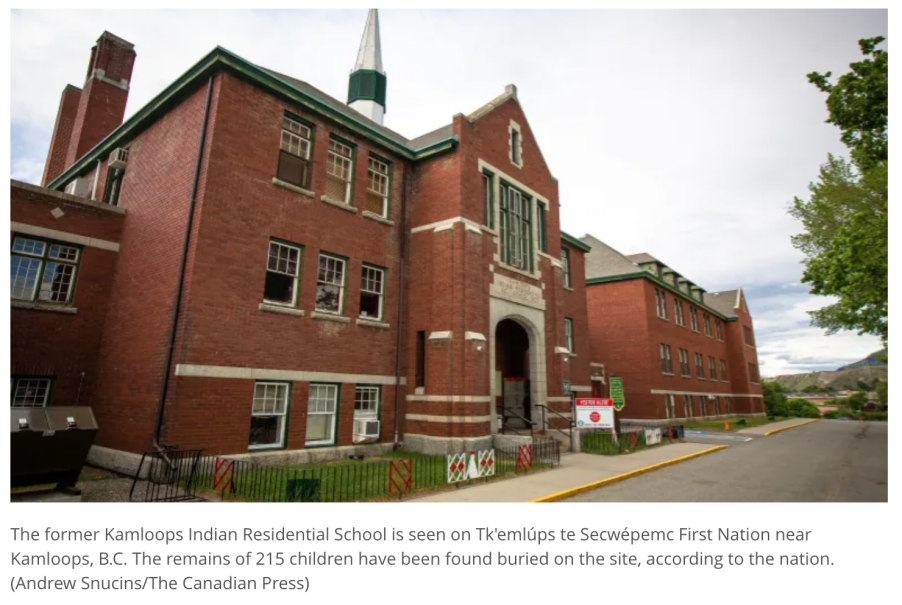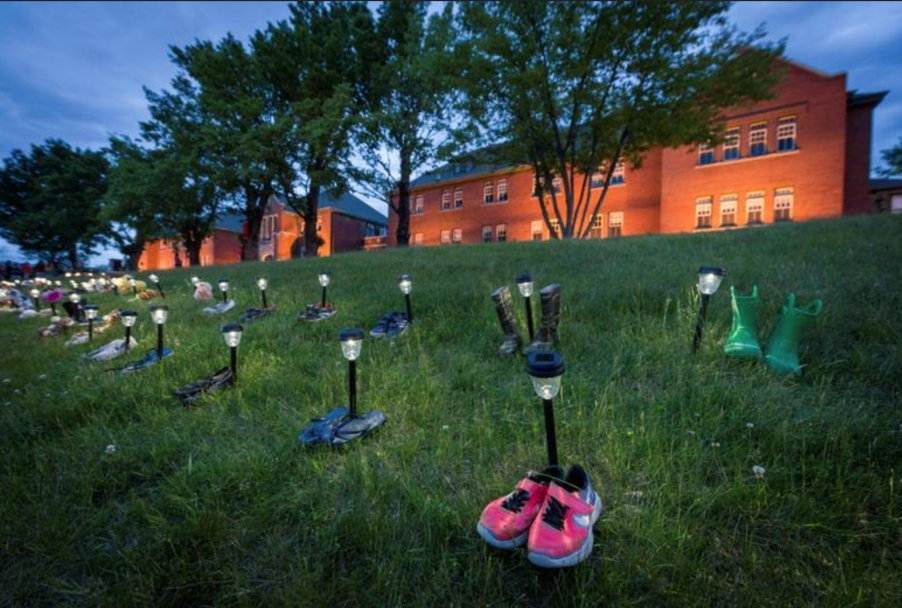In Search of Both Truth And Reconciliation

Jun 3, 2021 | by Brad Sumner
Since last weekend and the grim news of 215 bodies buried at the Kamloops Indian Residential School, I’ve been a bit numb. My thoughts are all jumbled and I vacillate frequently between sorrow, disbelief, hopelessness and anger.
This tangled web of colonial history and personal emotions leaves me uncertain about how to respond. What if I don’t say the right thing? What if I say the wrong thing? What is my role as an individual? And what is our role as a Christian church? Surely there is more to say and do than putting out carefully crafted statements, lowering flags to half mast, wearing orange, putting teddy bears out or updating our profile pictures?
Reconciliation Begins with Lament
Words on paper or orange borders on screens or vague political declarations miss the mark of real people suffering, lamenting, repenting, forgiving, changing - not just in the present moment but in the past and into the future. How do you capture in a few paragraphs the sheer totality of such atrocity and broken humanity? How do you capture the heart of God as reflected in the heart of the suffering?
The Old Testament prophets give us a picture that the pursuit of justice begins not with activism, but with lament. Rev. Dr. Soong-Chan Rah writes that “true reconciliation, justice, and shalom require a remembering of suffering, an unearthing of a shameful history and a willingness to enter into lament. Lament calls for an authentic encounter with the truth and challenges privilege, because privilege would hide the truth that creates discomfort.” (Prophetic Lament: A Call for Justice in Troubled Times). In other words, be careful about moving too quickly into action as a way of bypassing your emotions or doing the necessary work of relationship building.
Reconciliation Requires Careful Listening
Back in September of 2013, I made my way down with my son to the PNE for the Vancouver public event of Canada’s Truth and Reconciliation Commission (TRC). It was three days of listening, learning and lamenting. At one point, I remember sitting with a woman who had survived the Residential School System. She talked about being forced to dig holes in a yard for an unknown purpose. She later discovered that those holes were for the burial of toddlers who didn't survive but whose families were not notified of their deaths. Her story became a stark reality for me again this past week.
The TRC estimates in its reports that of the over 150,000 students who attended the more than 139 schools across Canada, that more than 3,200 students died. That is a lot of kids who never came home. “For one-third of these deaths, the government and schools didn’t record the student’s name. For one-quarter of these deaths, the government didn’t identify the student’s gender. And for around half, the cause of death wasn’t identified.” Think of the thousands of families and hundreds of indigenous communities impacted by the sheer scale of that loss… the intricate webs of family relationships ripped apart.

Seven generations of First Nations, Métis, and Inuit kids between the ages of 3 and 16 were sent to these schools over the years they operated, the last one only closing in 1996. So this is not ancient history or something we can shrug off by saying “I wasn’t alive then!”. This is a very recent legacy of colonialism and racism – both of which are still with us today. We need to listen to the voices and the ongoing pain of survivors.
Reconciliation Involves Education
Our partners at Mennonite Central Committee note that “the legacy of hundreds of years of discrimination and abuse – including the experience of residential schools – have left deep scars in Indigenous communities across Canada. The Truth and Reconciliation commission invites us to participate with action toward restoring broken relationships with our Indigenous neighbours, but the first steps are often fraught with anxiety and difficulty. As Christians, we recognize the injustices that were perpetuated against the Indigenous peoples of Canada, but don’t always know how to best respond.” (MCC Indigenous Neighbours Program).
Here at Jericho Ridge, we began to wrestle with this a few years ago when we invited Kairos and MCC to lead us through the Blanket Exercise. Admittedly, we have done little since then in terms of Indigenous education and initiatives and for this we are sorry. Over the coming weeks, you’ll see more content from us that helps us work at more deeply understanding the deep scars that still exist and where to turn for resources and guidance on what steps you can take.
While our specific church congregation (started in 2005) and our denomination (the Mennonite Brethren) and its predecessors did not enter into formal arrangements with the federal government, we recognize complicity and responsibility to respond. This was perpetuated in the name of Christ and so we understand that "what has been done in the name of Christ can only be undone in the name of Christ." (Sandra Maria Van Opstal, 2019 Evolving Faith conference).
Reconciliation Repudiates Abused Power and Betrayed Trust
Michael Miller, the Archbishop of Vancouver put out a June 2, 2021 statement saying, in part that “The Church was unquestionably wrong in implementing a government colonialist policy which resulted in devastation for children, families and communities.” Two powerful institutions called to work for the good of society both abused their power in unconscionable ways.
As a part of the historic peace church tradition, we reject violence and coercion in all of its forms including the grievous violence of settler Christians who used their power and privilege to forcibly perpetuate deculturalization and attempt to re-enculturate indigenous children. Dr. John Stackhouse notes pointedly that “Christianity was foisted on vulnerable children, it seems evident that some heavy-handed, even abusive, proselytizing went on. And that’s abominable. The true religion of Jesus knows nothing of coercion in matters of faith. No one should have to pretend to be a Christian to get food, shelter, and education from Christians. Normally, no one does, as the global services of Christians to their neighbours over hundreds of years attests.” (Stackhouse blog post: In Search of Truth and Reconciliation)

The TRC’s call to action #60 says that “We call upon leaders of the church…to develop and teach curriculum …on the need to respect Indigenous spirituality in its own right, the history and legacy of residential schools and the roles of the church parties in that system, the history and legacy of religious conflict in Aboriginal families and communities, and the responsibility that churches have to mitigate such conflicts and prevent spiritual violence.”
We acknowledge that we have not done our part in this. That it has taken the media and the news of a tragedy that the Tk̓emlúps te Secwépemc people have been working faithfully at uncovering for decades to wake many of us up to the historic experiences and contemporary realities of our Indigenous neighbours. Some of us have spoken ill of our indigenous brothers and sisters or harboured prejudice in our hearts. For these thoughts and attitudes, we repent. We are complicit in iniquity when we curse our brothers or sisters in our hearts (I John 3:15).
Reconciliation Also Involves Action
As Westerners, we are brought up in a culture of activism and it pervades every part of who we are and how we see the world. When something happens, we naturally ask not only “why” questions, but also “what can I do?” Often this comes from a place of wanting to “fix” things or people. But (and this is hard) we must lay aside our desire to centre ourselves in this discussion and to feel better by taking simple but perhaps not meaningfully lasting actions.
We must resist the impulse to “fix” this by giving a few dollars or writing a few letters or reading a few books. These can be good things, yet we must also desire to seek mutual flourishing by ensuring that all of us are standing on equal footing. This is the call of the Old Testament prophets for justice to flow like a mighty river, a river from which all peoples benefit (Amos 5:24).
Practically, this means closing funding gaps in education for First Nations children. This means advocating for clean drinking water on ALL First Nations in Canada. This means speaking up and advocating for more family support and family services for Indigenous families. Pick an issue (or 94) that you feel passionate about and find out how and with whom you want to dig in and pursue advocacy for the long haul.

Unfortunately, part of truth telling in our own time is to acknowledge that non-Christian people are sometimes out ahead of the Christian Church in the fight for both truth and reconciliation in Canada. Yet of all people, our Christian convictions ought to propel us beyond the private or religious doman and into the place of being a prophetic witness in the world. The gospel shows us that truth and reconciliation is not only possible, but that this is irreducibly the call of Christian witness in the world.
This is what it means to seek justice and love mercy and walk humbly with God. It is not merely about changing how we think and act personally but also involves the act of seeking institutional and systemic and cultural changes so that common grace is commonly available to all.
There is so much more that could be said, but at this point, words need to cease and reflection and relationship and action need to start or re-start. Local author Sarah Bessey said in her newsletter this week “Every step towards healing, towards justice, towards truth, towards reconciliation matters. So does every step away from it, every turned back or willful ignorance.” So what step(s)are you going to take?
We have a long way to go, church. Austin Channing Brown reminds us that “reconciliation is what we practice after we have chosen justice.” And justice means that it is time to lament. It is time to listen. It is time to learn. It is also time to act. It is only when we are taking some faltering steps along this long journey, that we can say we are pursuing both truth AND reconciliation.
- Pastor Brad
Land Acknowledgement: I respectfully acknowledge that I live, learn and work on the traditional unceded territories of the Katzie, Kwantlen, Matsqui and Semiahmoo First Nations.
Related Content on the JRCC Blog
Kairos Blanket Exercise Come to Jericho - Feb 2018
The Long Road Towards Reconciliation - Feb 16 2018
